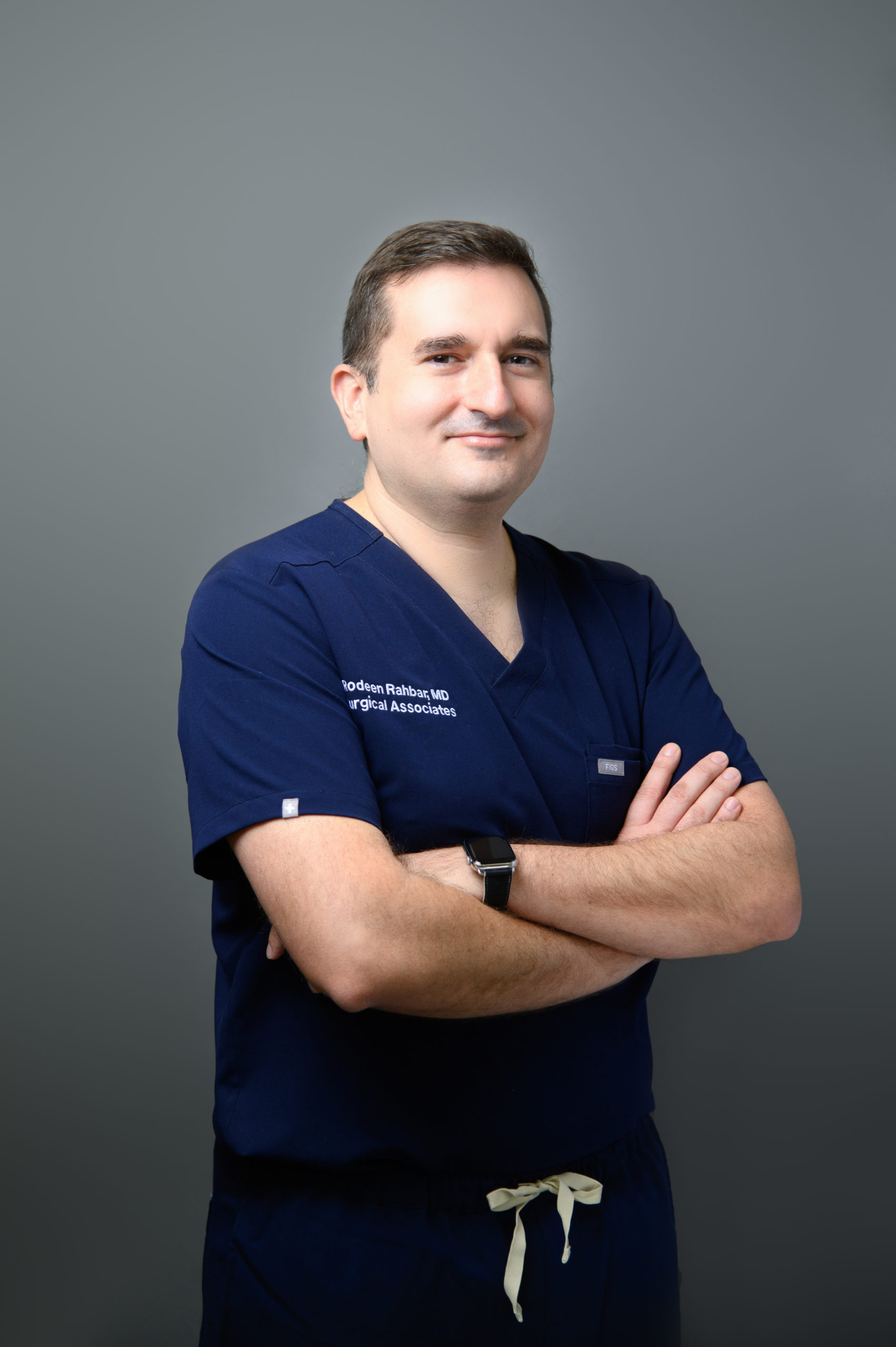Why You Should Choose an Outpatient Center for Certain Procedures
With the invention of search engines and online research, searching for a healthcare provider has become a lot easier. This convenience, however, comes with a different type of challenge… being overwhelmed. Also, with numerous opinions on every topic, it’s challenging to decipher between fact and fiction.
In this blog, we interview the chief medical officer and board-certified vascular surgeon of Surgical Associated Chartered, Dr. Rodeen Rahbar, to get the medical facts.
Why is it vital to weigh your options when choosing treatment for your vascular conditions?
Dr. Rodeen Rahbar has worked in a hospital setting throughout his 25-year career, and has seen first-hand how hospital systems have changed for better or worse and how Healthcare Providers have adapted to these changes for the sake of their patients. One important change has been the treatment of certain prevalent diseases like Peripheral Arterial Disease (PAD). Traditionally, this disease required hospital admission, anesthesia, and several days of recovery. But all that is changing.
Like most progressive societies, healthcare providers want to find more effective, efficient, and cost-saving ways to treat these more common conditions. A breakthrough came in 1964 when Dr. Charles Dotter was credited with performing the first minimally invasive angioplasty. This innovation is now the preferred method of treating vascular disease today.
So, why would someone want to go to an outpatient center, or in most cases a private medical office, over a hospital?
There are many reasons, but for the sake of this discussion, we will discuss the top 3 reasons. These reasons come directly from patients that have chosen minimally invasive procedures in a medical office versus a hospital. Once we discovered them, we asked Dr. Rahbar to elaborate on each reason and explain why it is vital to recovery.
Quality- Continuity of care
How important is it for you, the patient, to have one person caring for you and one person performing surgery on you? Do you think this affects the quality of care?
In the hospital, you get a different team of people caring for you, and that team is sometimes more familiar with another specialty (cardiology) rather than specifically vascular. In our office, the same nurses, radiology technologist, anesthesia specialists, and surgeons are there, performing the same vascular procedures every day. They are super specialized, and hence have the most experience to care for you before, during, and after the procedure. Whereas in the hospital, you may get a cross covering team caring for you (depending on the staffing availability), in the office, it’s always a team that knows vascular are and cares for the same type of patients every single day.
Cost
Cost may not seem as important when you have health insurance, but reimbursement costs can actually have an impact on your out-of-pocket costs at the end of the day. Although it is not always fair to hospital systems, in-office procedures are “less of a burden” on the healthcare system. What does this mean exactly?
It means that insurance companies want to save money, and they do this by charging the “little guy” less for the same procedure. This is ok because they have way fewer people to pay. There are no facility fees, or provider fees, or supply costs because the surgeon typically owns all of this already. It just becomes more of a win-win for the patient. And the system.
Ease of Access
Have you ever tried to call a hospital to speak to your surgeon? Or schedule a procedure on your own? It makes sense that an institution as large as a hospital can be far more challenging to access information, people, or details you need when you need them. This is not to say that medical offices excel in this department, but it is much easier to drive up in front of the main door, walk-in, see a nurse, and get your treatment.
Scheduling is also much more accessible because, typically, a scheduling coordinator handles all the paperwork and details. Life just became a lot easier when people and information are more accessible. The other part of accessibility is getting there and getting home safely. Dr. Rahbar confirmed that many outpatient centers, including his own, are now providing private transportation for patients getting a procedure. This option also made treatment more accessible for those who don’t have someone to drive them home after recovery.

Dr. Rahbar is an esteemed vascular surgeon at Surgical Associates Chartered, known for their exceptional contributions to the field of vascular surgery. As a board-certified vascular surgeon with over 20 years of invaluable experience, Dr. Rahbar is a respected authority in the medical community serving Camp Spring, Maryland and the whole community of Mryland. Their unwavering dedication to providing advanced care for patients with diseases of the arteries and veins has earned them a reputation for excellence. Dr. Rahbar’s work embodies a passion for precision and compassion, improving the lives of those they serve, one procedure at a time.
